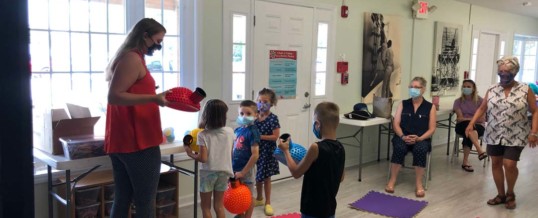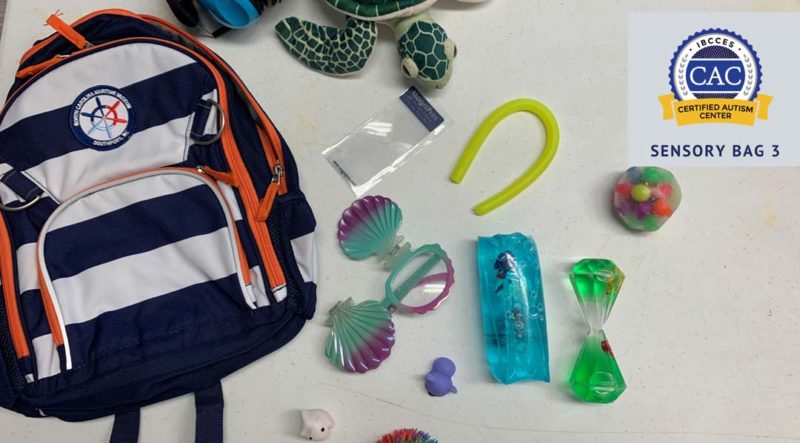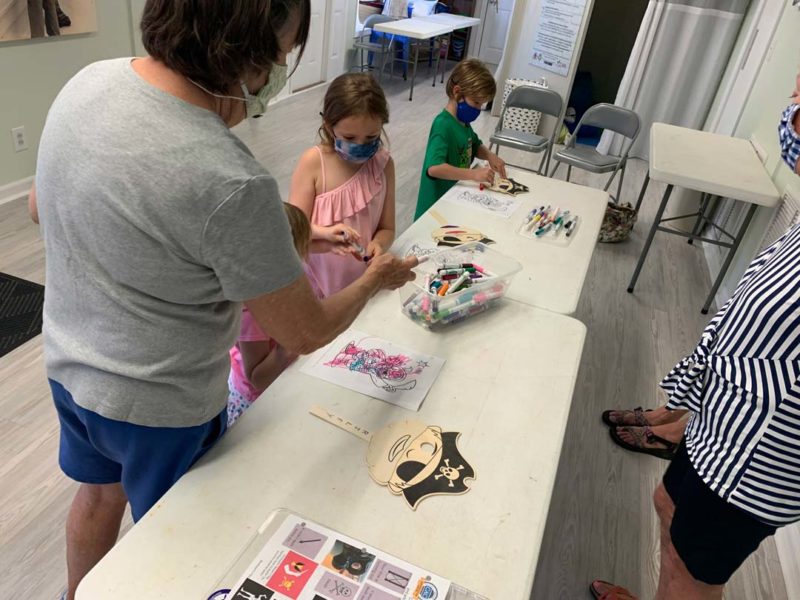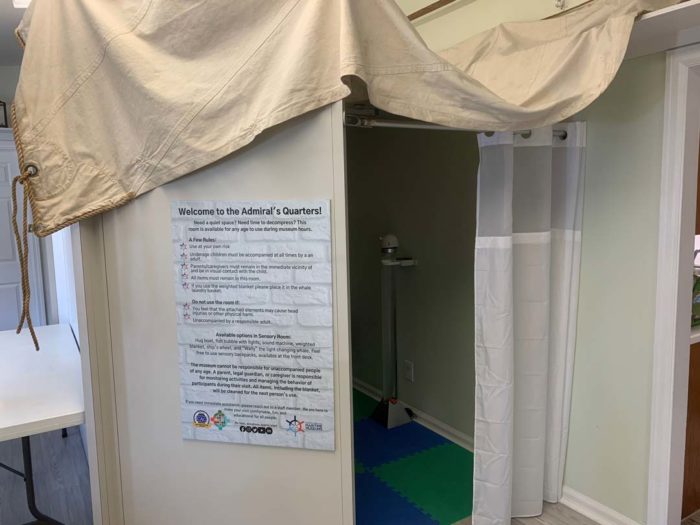
The North Carolina Maritime Museum at Southport recently renewed its commitment to ensuring visitors feel welcomed. Staff at the museum completed requirements to renew its Certified Autism Center™ designation through the International Board of Credentialing and Continuing Education Standards, which required ongoing professional development and training in autism and related needs. Since becoming a Certified Autism Center™ (CAC) in 2020, the North Carolina Maritime Museum at Southport has been actively working to educate and broaden its accessibility and sensory inclusive offerings to better assist autistic individuals and other sensory-sensitive visitors.
“The IBCCES training allowed us to look more deeply at how we are serving everyone who visits the museum,” Museum Manager Lori Sanderlin said. “This helps us provide a safe, welcoming, comfortable, and accepting environment for all.”

Since the pandemic, the North Carolina Maritime Museum at Southport’s team pivoted to develop new digital outreach programs and virtual tours with subtitles to stay in touch with the community during shutdowns. Once the museum resumed in-person visits, they established low-sensory rooms, as well as the “Admiral’s Quarter,” a space where guests can self-soothe whenever they have sensory overload or need a reprieve from the rest of the museum.
“It’s important to understand what will provide visitors with the most comfortable experience,” said Education Curator Katy Menne said. “Creating a welcoming environment is, at the core, about anticipating needs.”
As a result of the CAC training and certification, the museum leadership knew the importance of continuing its accessibility journey and reached out to area groups that support people with disabilities for additional advice and guidance.
“To ensure we were on the right track, we worked with experts within the community to help guide us,” Menne said.

That outreach included welcoming student interns from Cape Fear Community College’s Occupational Therapy Assistant program, who assisted the museum in creating an array of therapeutic teaching tools, including:
- Pirate Walk, which works to strengthen neuromusculoskeletal and movement-related functions of the body by completing pirate activities;
- Teaching Bins, which enhance motor, social, and verbal skills while teaching about types of vessels;
- Sensory Backpacks, which are filled with items like sunglasses and stuffed animals and loaned out as needed to make the visit more pleasant for someone whose senses can be over-stimulated;
- And Sensory Board, which features items that tie to most of the museum’s permanent exhibits to informally teach younger students of varying ages and abilities.

These enhancements have also benefited volunteers, including those with sensory sensitivities, by making the museum a more inclusive workplace.
“We’re proud to continue our partnership with the North Carolina Maritime Museum at Southport. The team is truly committed to creating memorable experiences for all visitors, including their autistic visitors and those with sensory sensitivities,” said Myron Pincomb, IBCCES Board Chairman. “With the addition of new programs and offerings, the museum’s initiatives are helping pave the way for others to be more accessible and inclusive for all.”
For more than 20 years, IBCCES has been the industry leader in cognitive disorder training and certification for education, healthcare, and corporate professionals around the globe. IBCCES provides evidence-based training and certification programs created in conjunction with clinical experts and autistic individuals to offer professionals a better understanding of how to communicate and interact with individuals with cognitive differences or sensory needs, industry best practices, and the latest research in these areas.
IBCCES also created AutismTravel.com as a free online resource for parents that lists certified locations and professionals. Each organization listed on the site has met Certified Autism Center™ (CAC) requirements.
Want to Learn How You Can Become Certified?
Fill out the form below to connect with an advisor to discuss certification options for you and your organization
FEB